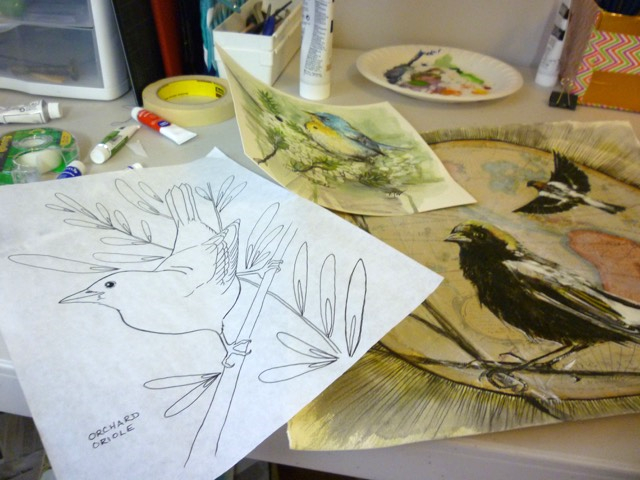Deepwater Horizon Oil Spill Wildlife Updates
An article published by Our Amazing Planet titled Oil's Effect on Endangered Species Possibly 'Mind-Bogling' discusses the potential effect of the spill on the smalltooth sawfish and other animals.
The Numbers
NOAA's daily report on the Deepwater Horizon oil spill for today verifies from April 30 - June 7 within the spill area: 315 turtles were stranded 263 were dead, 22 stranded alive (3 later died). 35 dolphins stranded dead, 2 stranded alive (both now dead). Although these numbers are higher than in previous years, NOAA states that not all of these strandings can be proven to be an effect of the oil spill. They note "In part, this may be due to increased detection and reporting and the lingering effects of an earlier observed spike in strandings for the winter of 2010." In which case I guess the strandings are just an effect of climate change or naval testing or some other human-created disaster.
Care2 reports What it Takes to Save Oil Soaked Animals and notes 289 birds found alive. 547 found dead.
What it's Worth
"Kill, don't clean" has been proposed as the correct response to oil-soaked birds by German animal biologist Silvia Gaus. Among the reasoning for this proposal Gaus lists catching and cleaning birds can cause them a fatal amount of stress. The costly, labor-intensive, and low success rate of cleaning birds is also sited.
I tend to think that just because we cannot save them all, does not mean we shouldn't try. All we have is hope. Hope that we could save one bird, that this will be a huge wake up call for America, that new energy solutions will now be our utmost priority, that Sarah Palin will finally shut the...oops. It's costly? Send the bill to BP. Tax us at the gas pump.
Here in Chicago, Ken Ramirez, the vice president of animal collections for the Shedd Aquarium in Chicago disagrees with the "kill don't clean" mentality. "The oil is not a natural substance," he says. "These animals ingest it, swim through it, and species can go extinct if we don't help."
Ramirez also points out an environmental catastrophe lurking below the Gulf's surface: "Eggs will be laid that will never hatch. Animals will eat them and have deformities. Hundreds of thousands of animals you will never see will be impacted," he said.
Sawfish
© Doug Perrine
© Doug Perrine
The Numbers
NOAA's daily report on the Deepwater Horizon oil spill for today verifies from April 30 - June 7 within the spill area: 315 turtles were stranded 263 were dead, 22 stranded alive (3 later died). 35 dolphins stranded dead, 2 stranded alive (both now dead). Although these numbers are higher than in previous years, NOAA states that not all of these strandings can be proven to be an effect of the oil spill. They note "In part, this may be due to increased detection and reporting and the lingering effects of an earlier observed spike in strandings for the winter of 2010." In which case I guess the strandings are just an effect of climate change or naval testing or some other human-created disaster.
Care2 reports What it Takes to Save Oil Soaked Animals and notes 289 birds found alive. 547 found dead.
Hermit crabs struggle through oil on a barrier island off of Louisiana
AP Photo/Charlie Riedel
What it's Worth
"Kill, don't clean" has been proposed as the correct response to oil-soaked birds by German animal biologist Silvia Gaus. Among the reasoning for this proposal Gaus lists catching and cleaning birds can cause them a fatal amount of stress. The costly, labor-intensive, and low success rate of cleaning birds is also sited.
I tend to think that just because we cannot save them all, does not mean we shouldn't try. All we have is hope. Hope that we could save one bird, that this will be a huge wake up call for America, that new energy solutions will now be our utmost priority, that Sarah Palin will finally shut the...oops. It's costly? Send the bill to BP. Tax us at the gas pump.
Here in Chicago, Ken Ramirez, the vice president of animal collections for the Shedd Aquarium in Chicago disagrees with the "kill don't clean" mentality. "The oil is not a natural substance," he says. "These animals ingest it, swim through it, and species can go extinct if we don't help."
Ramirez also points out an environmental catastrophe lurking below the Gulf's surface: "Eggs will be laid that will never hatch. Animals will eat them and have deformities. Hundreds of thousands of animals you will never see will be impacted," he said.



Comments
Post a Comment